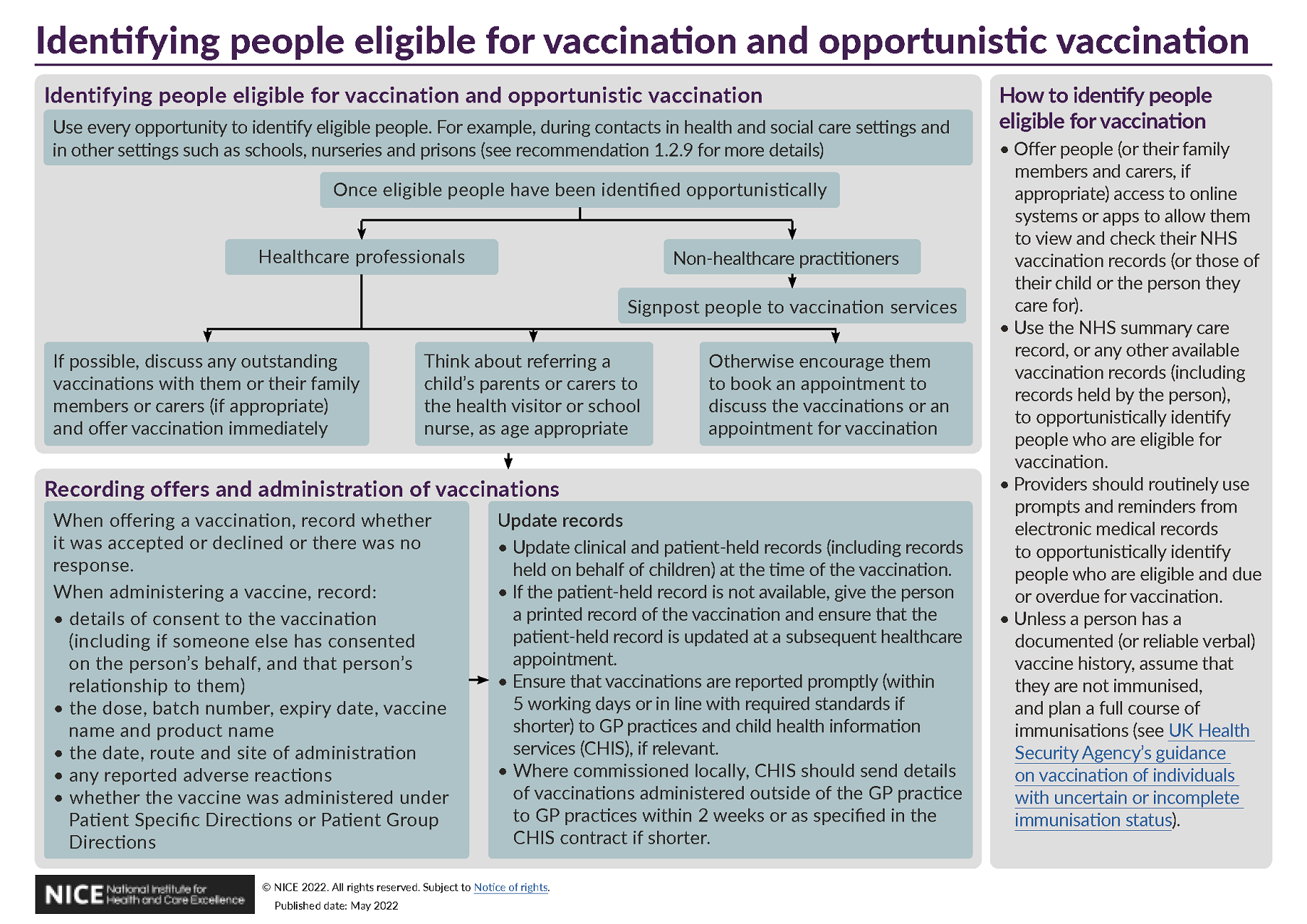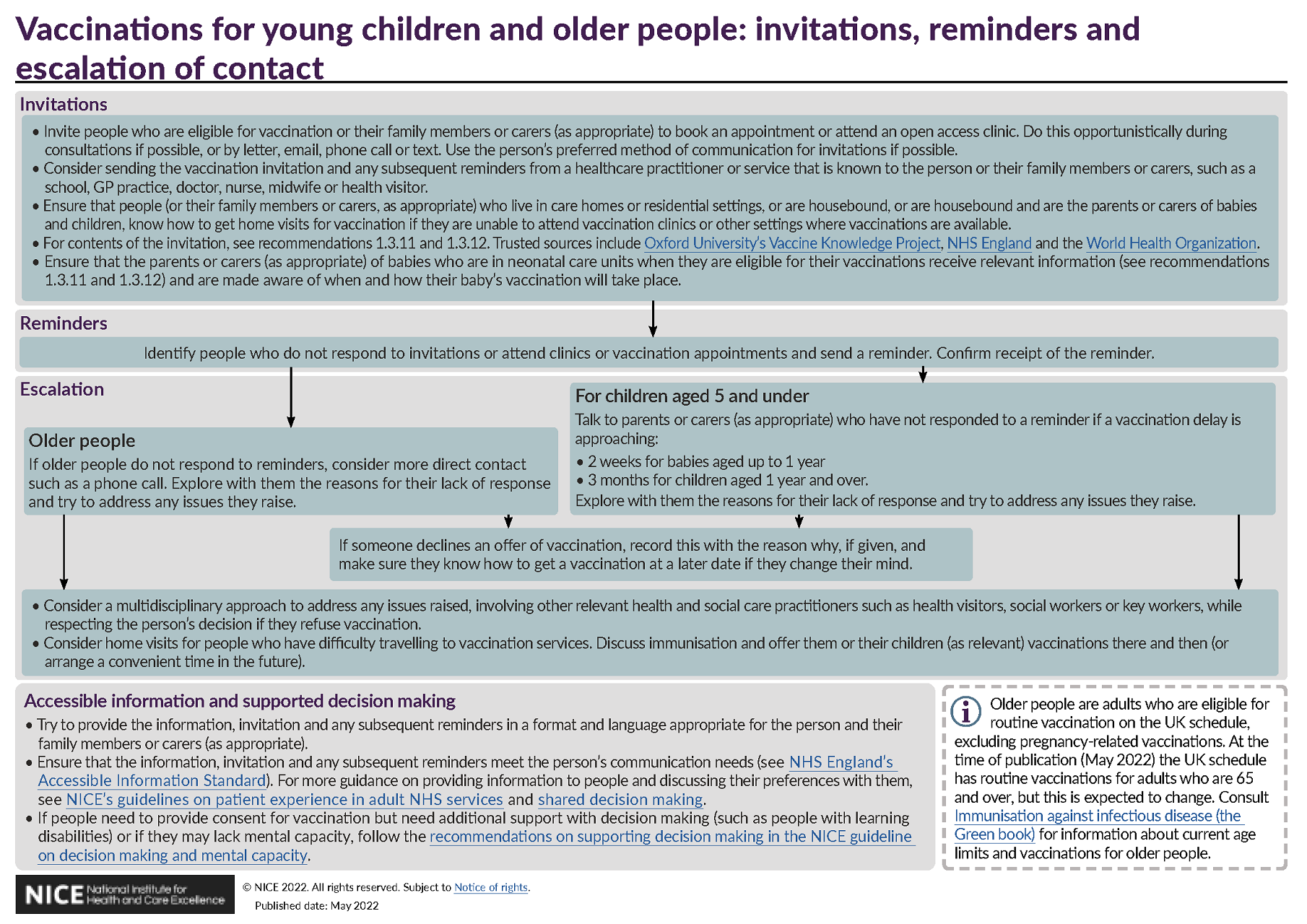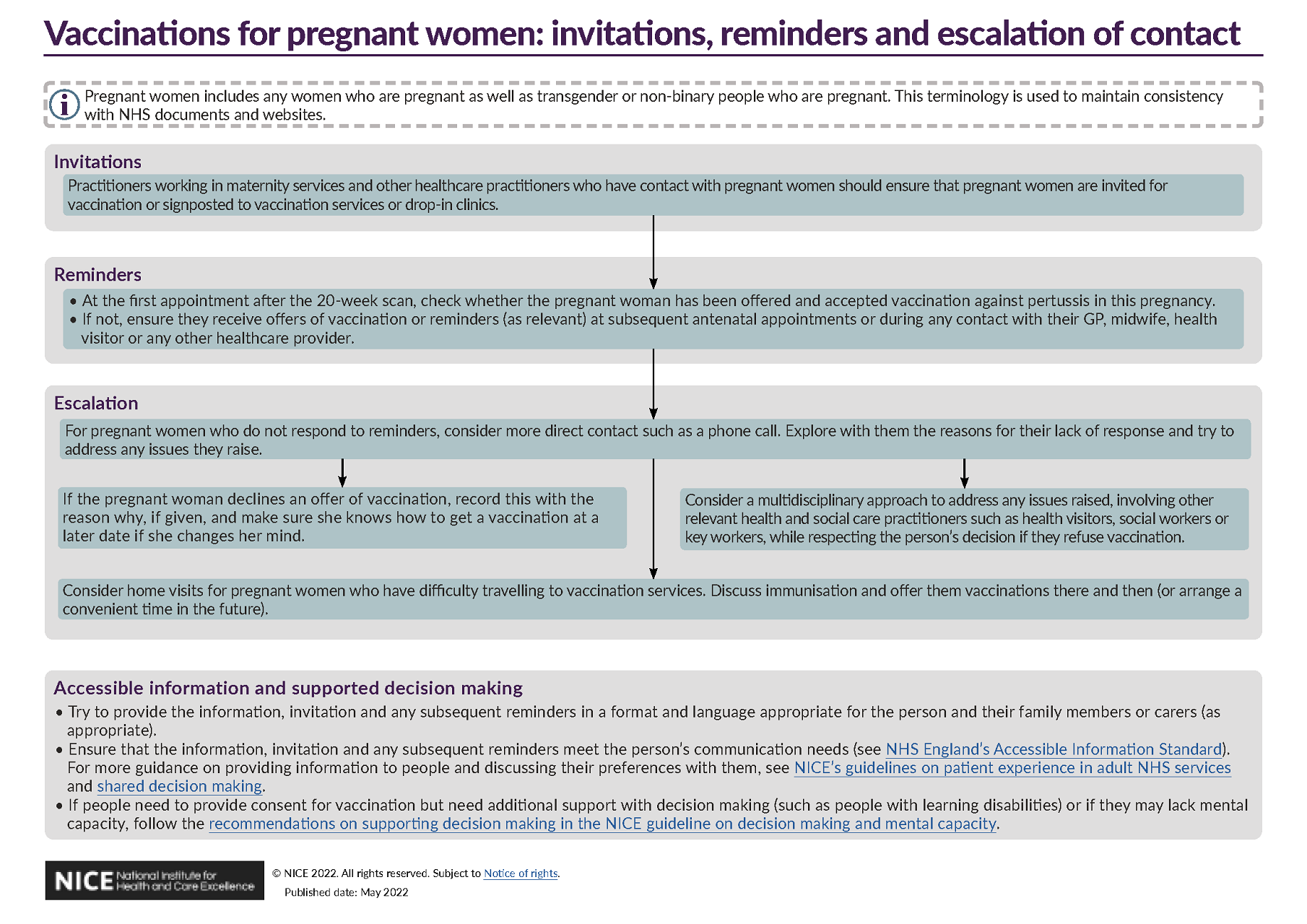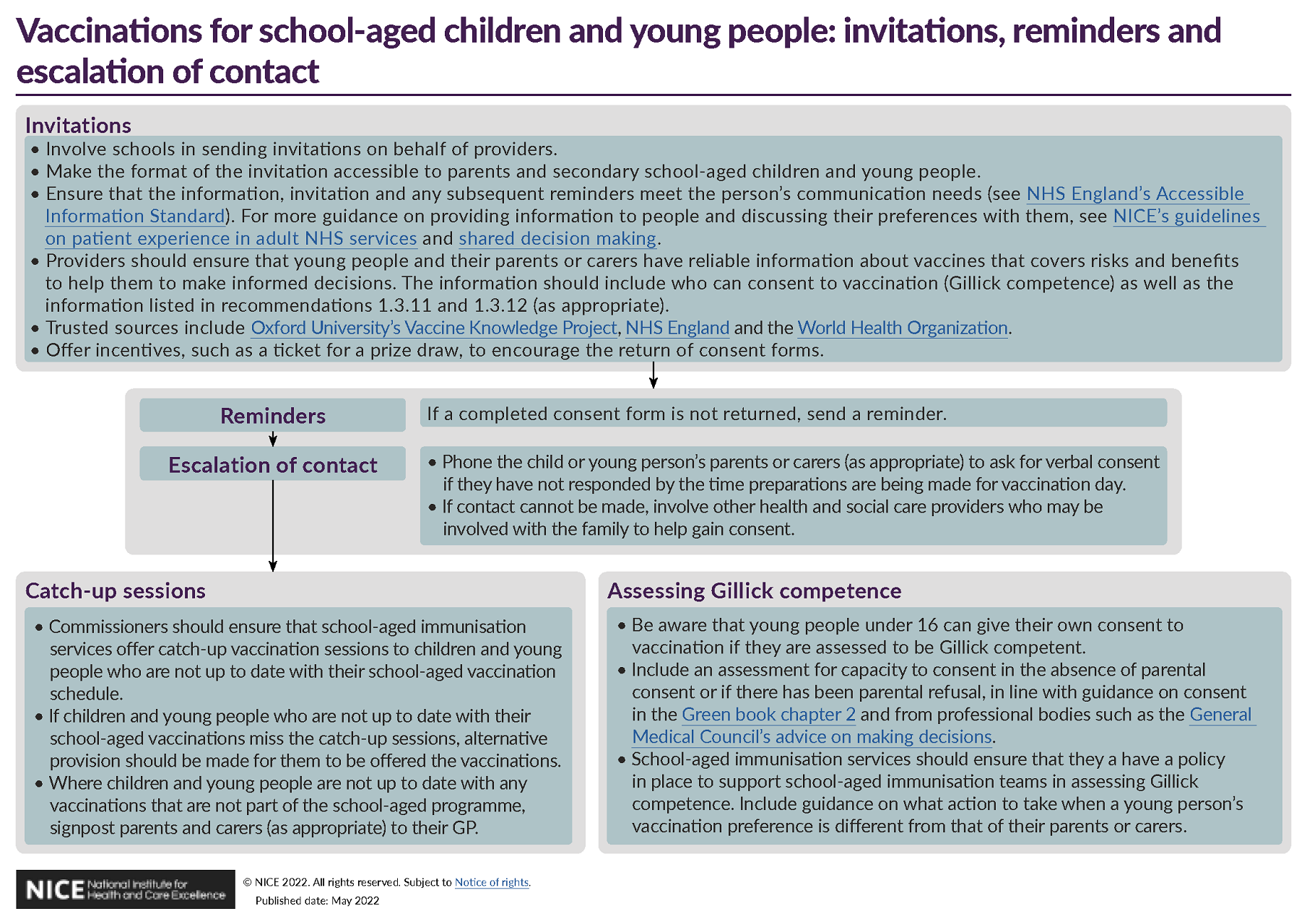Overview
This guideline aims to increase the uptake of all vaccines provided on the NHS routine UK immunisation schedule by everyone who is eligible. It supports the aims of the NHS Long Term Plan, which includes actions to improve immunisation coverage by GPs (including the changes to vaccinations and immunisations detailed in the 2021/2022 and 2022/23 GP contracts) and support a narrowing of health inequalities.
Recommendations
This guideline includes recommendations on:
- service organisation
- identifying eligibility, giving vaccinations and recording vaccination status
- invitations, reminders and escalation of contact
This guideline does not cover:
- Areas covered by NICE's guideline on tuberculosis.
- Areas covered by NICE's guideline on flu vaccination: increasing uptake.
- Travel vaccines.
- Selective immunisation programmes, as defined in the Green book.
- Seasonal vaccinations, for example flu vaccination.
- COVID-19 vaccinations.
- Catch-up campaigns alongside the introduction of a new vaccine.
See visual summaries on the recommendations for:
- identifying people eligible for vaccination and opportunistic vaccination
- vaccinations for young children and older people: invitations, reminders and escalation of contact
- vaccinations for pregnant women: invitations, reminders and escalation of contact
- vaccinations for school-aged children and young people: invitations, reminders and escalation of contact.
Who is it for?
- Commissioners and health policy makers
- Providers of healthcare services including general practice, pharmacy and school-aged immunisation providers, maternity services, emergency departments and independent providers of NHS services
- Social care providers
- Prison and secure setting employers
- Child health information services
- Local authorities, and community or voluntary sector organisations
- Education and training organisations
- UK and overseas Defence Medical Services providers and commissioners
- Occupational health services
- All people who are eligible for vaccination on the routine schedule, their families and carers.
Guideline development process
How we develop NICE guidelines
This guideline replaces NICE guideline PH21 (September 2009).
Your responsibility
The recommendations in this guideline represent the view of NICE, arrived at after careful consideration of the evidence available. When exercising their judgement, professionals and practitioners are expected to take this guideline fully into account, alongside the individual needs, preferences and values of their patients or the people using their service. It is not mandatory to apply the recommendations, and the guideline does not override the responsibility to make decisions appropriate to the circumstances of the individual, in consultation with them and their families and carers or guardian.
All problems (adverse events) related to a medicine or medical device used for treatment or in a procedure should be reported to the Medicines and Healthcare products Regulatory Agency using the Yellow Card Scheme.
Local commissioners and providers of healthcare have a responsibility to enable the guideline to be applied when individual professionals and people using services wish to use it. They should do so in the context of local and national priorities for funding and developing services, and in light of their duties to have due regard to the need to eliminate unlawful discrimination, to advance equality of opportunity and to reduce health inequalities. Nothing in this guideline should be interpreted in a way that would be inconsistent with complying with those duties.
Commissioners and providers have a responsibility to promote an environmentally sustainable health and care system and should assess and reduce the environmental impact of implementing NICE recommendations wherever possible.



